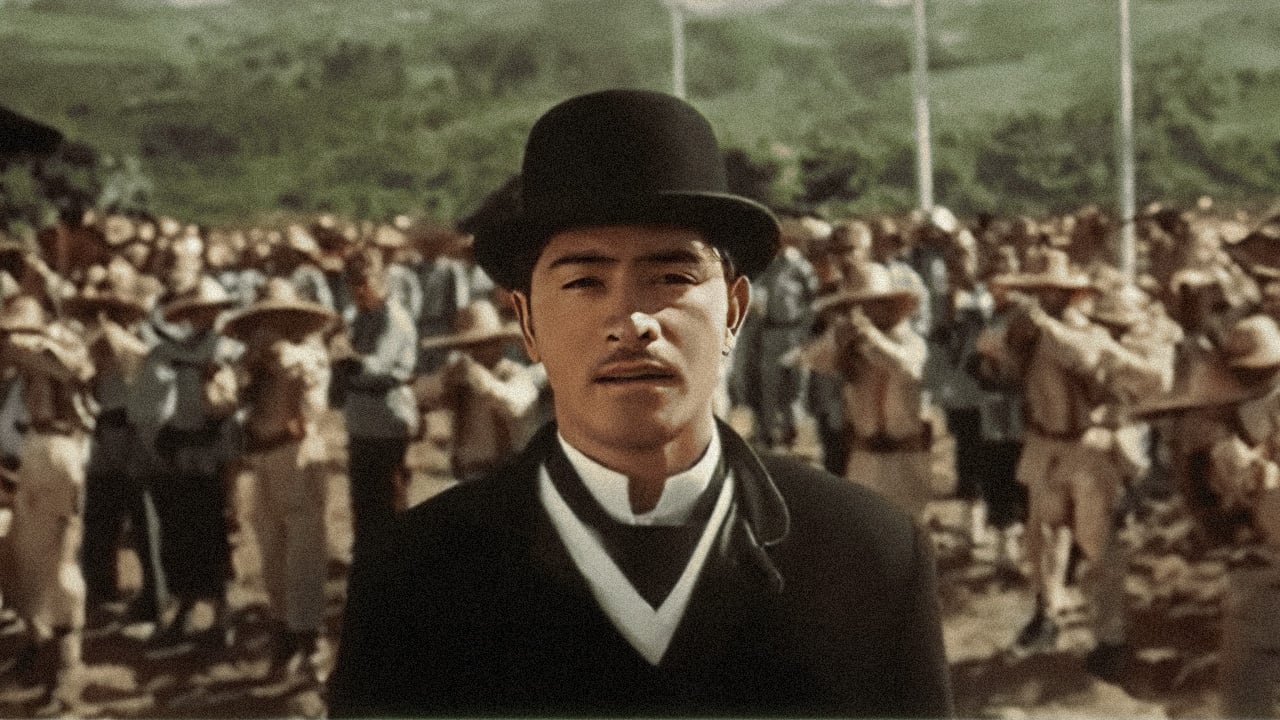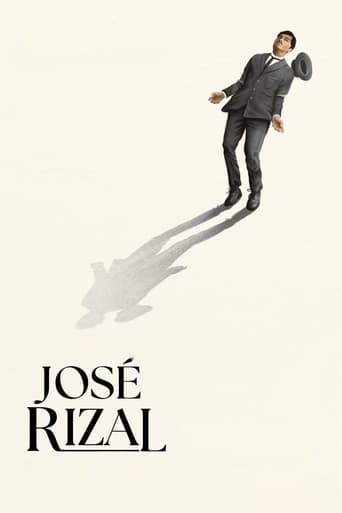

I need it for school, my teacher wants me to have a copy of this so we can watch it during our class.
... View MoreHappy Rizal Day to everyone! And as a special tribute to the national hero of my home country and hometown, here is an updated overview of the 1998 epic biopic, which I once considered the "best film of Philippine cinema".It is overwhelming to realize the influence that this film brought to the country. In obvious reasons, it comes from the understanding of the famed hero and his exploits. "Jose Rizal" then succeeded on interpreting Rizal's life story. As it should be, this film is a helpful module for students and others who have yet to know about Rizal.But glancing over that, others may seem to overshadow its slight faults. Though technically, "Jose Rizal" did excellently in its attempts to depict a Spanish-occupied Philippines, with its authentic sets, still cinematography, blend of sounds and images, and Marilou Diaz-Abaya's excellent direction. Its execution is nearly pitch perfect. Though it has to be set back by the story.Nothing offensive to the story. In fact, in a roaring 178 minutes, you feel the Rizal's story coming to life. The backdrop is Rizal's imprisonment in Fort Santiago, and the rest of his story was shown in flashback. Best parts were definitely intertwining Rizal's monologues with excerpts from his novels "Noli Me Tangere" and "El Filibusterismo". Though the effort was excellent, the attempt was too tight to depict Rizal as a "chosen one" on a hero's journey. And the end result is the movie going by the numbers to properly tell Rizal's story and the rising of the Philippine revolution. At the end, screenwriters Ricky Lee, Jun Lana and Peter Ong Lim had done a fine job, bringing Rizal's life, piece by piece. A minor complaint, I could have expect more grand from Rizal and more emphasis on its surrounding crucial history. There was indeed more material than what was depicted. But helpfully, the film respects its audience's receiving thoughts. The saving grace, thankfully, is Cesar Montano, who had done a magnificent work portraying the titular hero in a stilted yet affectionate manner. He really deserves honor in what I can call his signature movie role. The cast ensemble of familiar faces of local showbiz provide gravitas needed for every sequence. But the standout is definitely Jaime Fabregas as Rizal's defendant, Luis Taviel de Andrade. The ensemble acts this out like a three-act play but it was worth sitting through.Just applauding the excellence that "Jose Rizal" achieved makes it reasonable that other Philippine biopics used its templates for theirs. (See "Baler" and "El Presidente".) Beneath all that, I am going to claim that "Jose Rizal" may not be the best film that the Philippines has to offer. But it was a stepping stone in excellence for the local film industry. Thanks Ms. Diaz-Abaya.
... View MoreThe movie Jose Rizal is a great interpretation of the Philippines's tragic history. I believe it got all it's facts right which would help a lot in studying this quarter's lesson. It also shows patriotism and heroism in a peaceful way. It also is an accurate and colourful biography of Jose Rizal's full life. However, there were a lot of points where it was very difficult to understand what Jose Rizal was saying because it was usually in Spanish, and although they were really speaking in Spanish, I could tell Cesar Montano was having difficulties in reciting his Spanish lines. It only shows how he lacked practice and coaching with these parts. It is also rather confusing to watch because there were too many flashbacks and you won't know if he was still in Spain or what. If you are a person who is easily confused, do not watch this movie because all you would do is gape at the screen and be befuddled by these flashbacks. Of course, if you can cope with the weird scene-cuttings, well, there isn't a problem with watching it at all. I would also encourage you to watch it again after the first time to understand it more clearly. I would not recommend this movie to students' grade 5 and below. Apparently, the movie has its own complexity and some scenes of violence. There are also some scenes wherein it's very inappropriate for young children such as the nude and bed scene in the first part. Although the scene shows how abusive the friars are with their power which would include raping Filipino women, the scenes are very disturbing, even for us. There is also some times wherein Jose Rizal has somewhat a mad glint in his eye as if he seemed frustrated which is quite disturbing to look at. It only shows the desperation of Jose Rizal through body language; however, this was excellently portrayed in some scenes. Although based on true fact, I believe that the fact that Jose Rizal did have a love affair with his cousin should not have been shown in the movie because it gives Jose Rizal a new and bad light after he kissed Leanor Rivera, his cousin. Maybe they could have showed that Jose Rizal did have a love affair with his cousin in a more custom way, but it should not have been portrayed in a sexual way. This would completely disgrace Filipino culture because our culture is very conservative, and kissing in a clinic is very far from what I would say conservativeness of the Filipinos. Other love affairs of Jose Rizal such as the one with Josephine Bracken publicly showed that they had a child together, but it died during birth. It was also mention several times that they had a child. This would not only disgrace the name of Jose Rizal but also the Filipino people. Although he wasn't exactly what you would call a teenager at that time, a pre-marital baby is not what you would be proud to this day, and I guess in those days, you would reach the point of being disowned by your own family. And even though we all know that Jose Rizal was really a womaniser, you wouldn't want to know that our national hero actually was a very kinky man after all. Overall, I half-enjoyed and was also half-disturbed by the movie. This would certainly help in understanding the life of Rizal, but I really don't think it's appropriate for small kids. I would recommend this movie to people who would like to know more about the history of the Philippines, but personally, if you are not interested and you are not required to watch this at school, do not watch it because as I have said, it's very disturbing.This is a copy of my reaction paper for this movie in History class and i'm 13 years old and we're REQUIRED to submit one.
... View Morewow...this is the reaction I felt after watching this movie documenting the life of Jose Rizal. I couldn't help but feel a sense of pride when watching certain parts. I'd recommend anybody to see this movie, but I think filipinos should see it too, as the movie is a perfect blend of the Philippine national hero's life and his two books, Noli Me Tangere and El Filibustrismo, and will leave you feeling this sense of pride in your country.
... View More